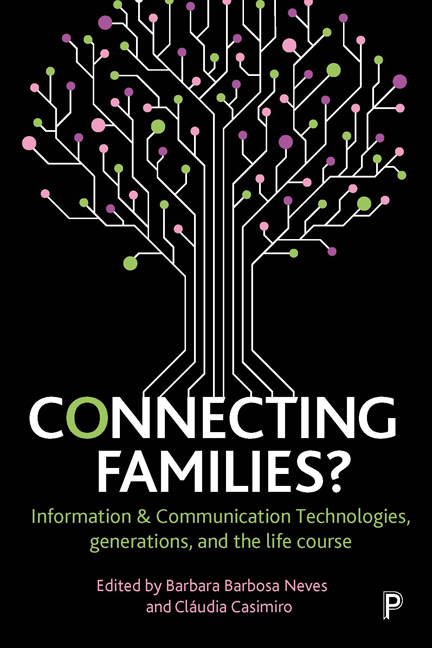Book contents
twelve - Rescue chains and care talk among immigrants and their left-behind parents
Published online by Cambridge University Press: 22 April 2022
Summary
Introduction
I introduce a new framework that focuses on the communication developed by immigrants living in the United States to care for their aged left-behind parents and grandparents through information and communication technologies (ICTs). Their care was captured through communication chains they developed to rescue these family members who had health problems associated with ageing. These parents and grandparents, living in their natal countries, and their adult children residing abroad engaged in a type of talk through ICTs that was characterized by protecting, providing, and proving that the care was valued. The stories of ten participants are illuminated through a methodology that engages qualitative understandings of the complexity of long-distance care communication. These stories emerged from a study of 60 immigrant women from various countries living and working in Washington State and their communication with their left-behind families (Cuban, 2017). The parents, mostly in their late 60s and older had various problems associated with ageing, including dementia, vision loss, prostate problems, mobility difficulties, and falling injuries, as well as chronic diseases such as diabetes that had taken a toll over a long lifetime, with the participants struggling to care for them while abroad. Additionally, a number of these parents were impoverished and lived in rural areas, such as Oaxaca, where there was a lack of health and medical care services, transportation, and resources, as well as communications infrastructure. I started my research on this particular problem with the following questions: To what degree do family members care for one another through ICTs across the life course and with special attention to health problems associated with ageing? What are the issues involved in communicating about this care? While the most recent literature (Baldassar, 2016; Madianou, 2016) demonstrates that non-proximate care within transnational families shows bonding from abroad, the focus has been on the ICTs themselves. I argue that the exchange of transnational care between separated family members is contingent not only on the ICTs, but the talk with which the family members engage at a distance. ICTs in and of themselves do not and cannot deliver care, bond relations or families and due to their architecture are severely limited. Yet in the literature, it would appear that it is the technology platforms and applications that make long-distance connections possible rather than transnational family members and their uses of ICTs.
- Type
- Chapter
- Information
- Connecting Families?Information and Communication Technologies, Generations, and the Life Course, pp. 219 - 236Publisher: Bristol University PressPrint publication year: 2018

